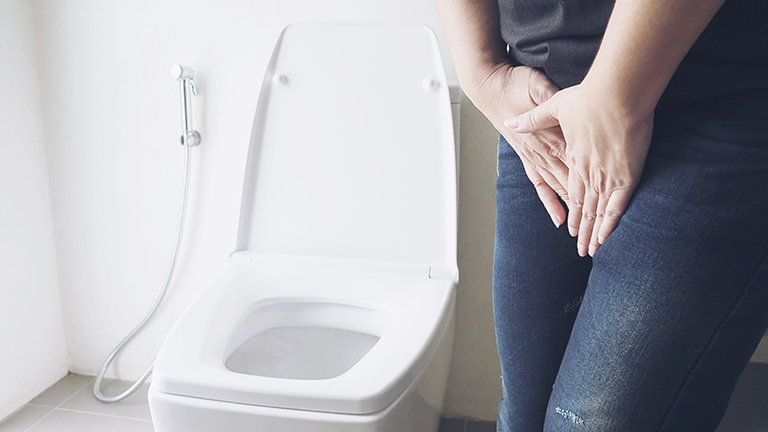A urinary tract infection (UTI) is a common bacterial infection that affects any part of the urinary system, including the urethra, bladder, ureters, and kidneys. Recognising the symptoms of a UTI early is essential to prevent complications and ensure timely treatment.
Table of Contents
What Is a Urinary Tract Infection (UTI)?
A urinary tract infection occurs when harmful bacteria, most commonly Escherichia coli (E. coli), enter the urinary tract and multiply, leading to inflammation and infection. UTIs can affect the urethra (urethritis), bladder (cystitis), or kidneys (pyelonephritis), and if left untreated, can lead to severe health complications.
Common Symptoms of a UTI
Painful or Burning Sensation During Urination
One of the most recognizable urinary tract infection (UTI) symptoms is dysuria, a painful or burning feeling during urination. This occurs because the infection inflames the urethral lining.
Frequent Urge to Urinate
Individuals with a UTI often feel a persistent need to urinate, even if very little urine is passed. This urinary urgency is caused by irritation of the bladder wall due to bacterial infection.
Cloudy or Bloody Urine
UTIs can cause urine to appear cloudy or contain traces of blood (hematuria). The urine may also have a strong, unpleasant odor due to the presence of bacteria and white blood cells.
Lower Abdominal or Pelvic Pain
Inflammation in the bladder or lower urinary tract can lead to suprapubic discomfort or lower abdominal pain. This symptom often accompanies the other classic UTI signs.
Symptoms Based on the Affected Area
Lower Urinary Tract (Bladder and Urethra)
Lower UTIs primarily affect the bladder and urethra and commonly present with:
- Burning sensation during urination
- Frequent urination
- Urgency to urinate
- Cloudy or strong-smelling urine
- Pelvic or lower abdominal discomfort
Upper Urinary Tract (Kidneys)
Infections that reach the kidneys (pyelonephritis) are more serious and may cause:
- High fever and chills
- Flank or back pain
- Nausea and vomiting
- Fatigue and malaise
Symptoms in Specific Populations
Children
Children may present with nonspecific symptoms such as irritability, poor feeding, vomiting, or fever. Prompt diagnosis is crucial to prevent kidney damage.
Older Adults
Older adults may show subtle or atypical symptoms like confusion, delirium, or fatigue rather than classic urinary complaints. UTIs in seniors require careful monitoring to avoid complications.
Pregnant Women
Pregnant women are at higher risk of UTIs due to physiological changes. Symptoms may include urinary frequency, urgency, and lower abdominal discomfort. Untreated UTIs can lead to preterm labor or kidney infection.
When to Seek Medical Attention
Seek medical help immediately if you experience:
- Fever or chills
- Severe flank or back pain
- Persistent vomiting
- Blood in urine
- UTI symptoms in infants, young children, older adults, or pregnant women
Early intervention can prevent complications such as kidney infections or sepsis.
Preventive Measures and Lifestyle Modifications
Preventing UTIs involves simple lifestyle habits:
- Stay hydrated and urinate regularly
- Practice good personal hygiene
- Wipe front to back after using the toilet
- Urinate after sexual activity
- Avoid irritants like harsh soaps or bubble baths
- Consider probiotics to maintain healthy urinary tract flora
Treatment Options and Prognosis
Treatment depends on infection severity and location:
- Antibiotics: The primary treatment for bacterial UTIs. Duration and type depend on the infection site and patient condition.
- Pain relief: Over-the-counter analgesics like acetaminophen or phenazopyridine may relieve discomfort.
- Hydration: Drinking plenty of water helps flush bacteria from the urinary tract.
- Follow-up: Ensuring complete recovery and monitoring for recurrent infections.
Most UTIs respond well to treatment if diagnosed early, with symptoms resolving within a few days of therapy.
Expert Insights and References
- Mayo Clinic: Urinary Tract Infection (UTI) Symptoms & Causes
- Cleveland Clinic: Urinary Tract Infections
- NHS: Urinary Tract Infections
- CDC: Urinary Tract Infection Overview
- Urology Care Foundation: Urinary Tract Infections in Adults
By understanding the symptoms of urinary tract infections (UTIs) and seeking timely medical care, individuals can prevent complications and maintain urinary tract health.


